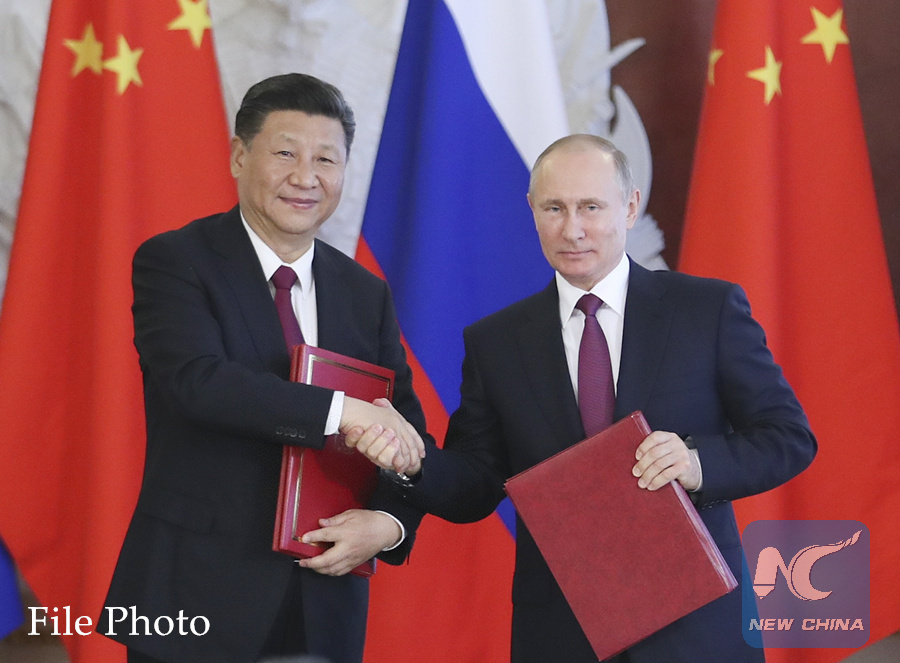
Chinese President Xi Jinping and his Russian counterpart Vladimir Putin attend a signing ceremony after their talks in Moscow, Russia, July 4, 2017. (Xinhua/Xie Huanchi)
ASTANA, May 17 (Xinhua) -- China and the Eurasia Economic Union (EAEU) on Thursday signed an agreement on trade and economic cooperation, the first major systematic arrangement ever reached between the two sides.
The document was signed by Chinese Vice-Minister of Commerce Fu Ziying, Chairman of the Board of the Eurasian Economic Commission (EEC) Tigran Sargsyan and representatives of the EAEU members at the Astana Economic Forum that kicked off on the same day.
The agreement covers 13 aspects such as customs cooperation, trade facilitation, intellectual property rights, sectoral cooperation and government procurement, including new topics like e-commerce and competition.
China and the EAEU agreed to further simplify procedures of customs clearance and cut costs of trade in goods by strengthening cooperation and exchange of information between each other.
The agreement is expected to take effect as early as the beginning of 2019.
Marking a new stage where China's trade and economic cooperation with the EAEU has upgraded from being driven by projects to being guided by rules and regulations, the agreement is seen as a milestone in driving the integration of the Belt and Road Initiative and the EAEU framework.
It is expected to help further reduce non-tariff trade barriers, create a better environment for industrial development and promote the in-depth development of economic and trade relations between China and the EAEU.
Established in 2015, the EAEU groups Russia, Kazakhstan, Belarus, Armenia and Kyrgyzstan.
In May 2015, top leaders of China and Russia signed joint declarations on integrating the construction of the Silk Road Economic Belt and the framework of the EAEU.
In October 2016, China and the EAEU started one-year negotiations on trade and economic cooperation, during which five rounds of talks, three meetings of joint working groups and two ministerial consultations were held.

